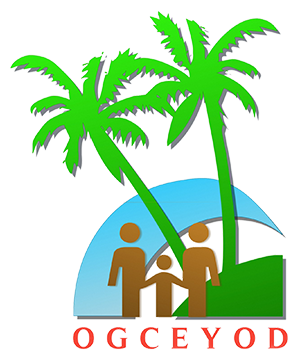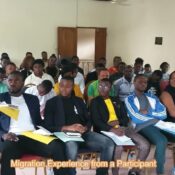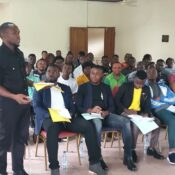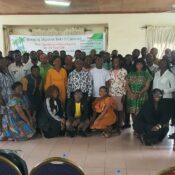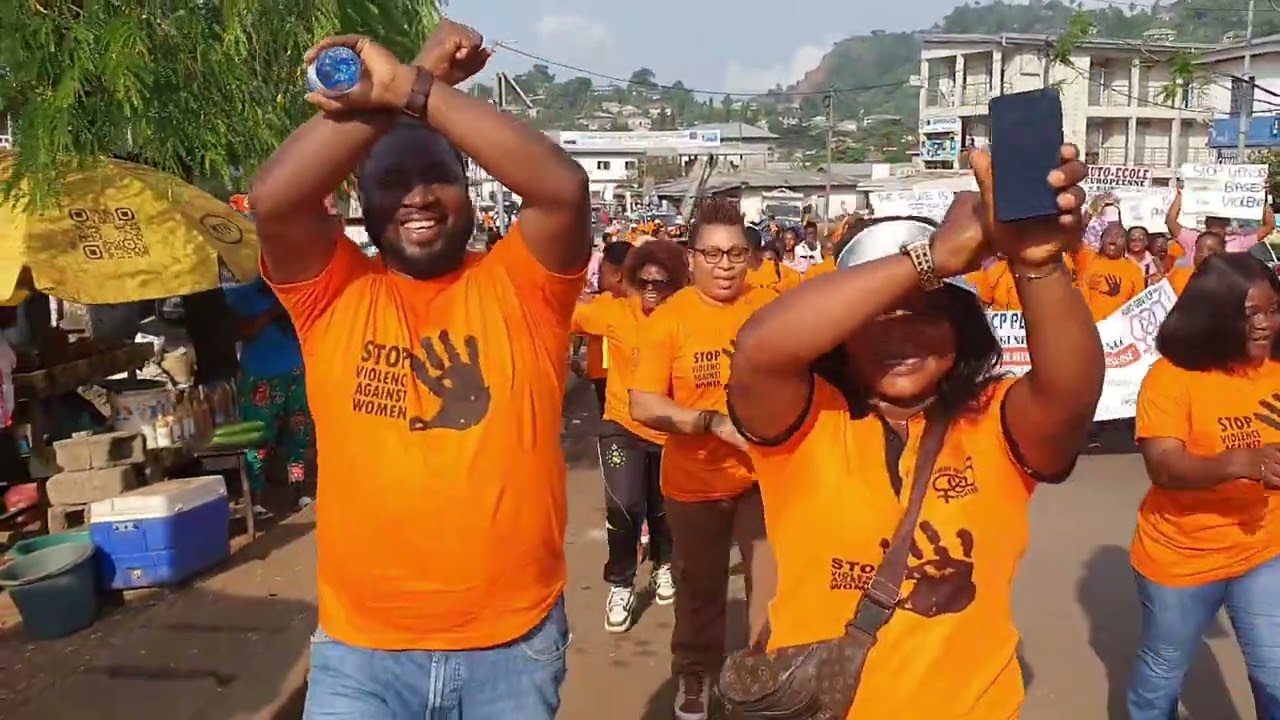
OGCEYOD Cameroon; Responding and Rebuilding after the Abuse (16 Days Activism against GBV)
The ‘16 Days of Activism against Violence against Women and Girls’ is a global campaign that begins on 25 November, the ‘International Day for the Elimination of Violence against Women’, and ends on 10 December, ‘Human Rights Day’.
This international campaign, which reminds us of the urgent need to combat acts of injustice suffered by women and girls throughout the world, was launched by activists at the inauguration of the Women’s Global Leadership Institute in 1991. It has as objective to raise awareness of the impact of violence on women and girls and to build commitment for behaviour change, while offering individuals and organisations, including the United Nations and partners worldwide, a strategy for mobilisation and action to strengthen awareness-raising, advocacy, knowledge-sharing and innovation efforts.
It is based on six key principles:
– the survivor-centred approach;
– non-discrimination and inclusion: ‘Leave no one behind’;
– make the voice of young feminists and youth-led organisations heard;
– honour and recognise women’s movements and their leadership in preventing and combating violence against women and girls in general;
– implement government strategies to prevent violence against women and girls;
– developing the transformative approach.
In support of this civil society initiative, UN Secretary-General Antonio Guterres is calling for global action to raise awareness, galvanise advocacy efforts and share knowledge and innovations to end violence against women and girls (VAWG) through the global ‘UNiTE’ campaign launched in 2008 .
II. CONTEXT AND JUSTIFICATION
Apart from being a political issue, the fight against violence on women and girls is gradually becoming an important concern within the human rights and humanitarian agendas. Acts of violence are now considered as a pandemic, since they continue to be the most common and widespread human rights violation (UN, 2023), with millions of visible and invisible victims . On a daily basis, these victims are subjected to more insidious forms of brutality that affect them, regardless of their age, economic status, level of education or social background, and are detrimental to their physical integrity and mental health.
With the imminent review of the 30th anniversary of the implementation of the Beijing Declaration and Platform for Action, and following the call for accelerated progress towards the 2030 Agenda by the 2023 Sustainable Development Goals (SDGs) Summit, violence against women and girls remains extremely prevalent in private and public spaces in all forms, including its most extreme manifestation – the killing of women and girls .
In Cameroon particularly, the figures from various associations and institutional sources since the beginning of 2024 are overwhelming: close to sixty cases of feminicide. Four years ago, the National Institute of Statistics (2020) shed light on the scope of violence against women throughout Cameroon. The 2018 DHS results show that 39% of women have been subjected to physical violence since the age of 15, 7% of pregnant women are victims of physical violence, about 11% are married at an early age, 13% have been victims of sexual abuse and 22% have endured emotional and psychological violence.
At the international level, the Beijing Declaration and Platform for Action were adopted at the Fourth World Conference on Women in 1995. This programme for action reaffirms the fundamental principle that the rights of women and girls are “an inalienable, integral and indivisible part of universal human rights”. With regard to reparations and support services for survivors of gender-based violence, Recommendation No. 35 of the Convention on the Elimination of All Forms of Discrimination against Women (CEDAW), under paragraph 33, calls for the implementation of the following measures in relation to reparations for sexual abuse and gender-based violence:
– financial compensation;
– legal, social and health services;
– sexual, reproductive and mental health services for a full recovery;
– satisfaction and guarantees of non-repetition.
These remedies should be appropriate, rapidly provided, holistic and proportional to the seriousness of the harm suffered. Referring to psychological reconstruction after rape, AYANNA Mouflet, an activist from Martinique, emphasised that the “psychosocial reconstruction” of women who have been victims of sexual abuse is (…) an essential step in the overall reconstruction of society.
At the regional level, the Protocol to the African Charter on Human and Peoples’ Rights on the Rights of Women in Africa, adopted in 2003 (Maputo Protocol) and ratified by Cameroon in 2012, promotes through its provisions, the right to life, integrity and security of the person (Art 4), the protection of women against violence, including harmful traditional practices (Art 5), and the protection of women in armed conflicts.
source
Recent Posts
OGCEYOD Cameroon; Managing Migration Risk in Cameroon – Opportunities and Risks in Migration 65 sec
OGCEYOD Cameroon; Managing #Migration Risk in #Cameroon – Opportunities and Risks in Migration
OGCEYOD Cameroon; Opportunities and Risk in Migration (#Managing #Migration Risk in #Cameroon)
There is Always Room to Give
This will put a smile on someone's face.
+237 698 974 201
info@ogceyod.org contact@ogceyod.org

